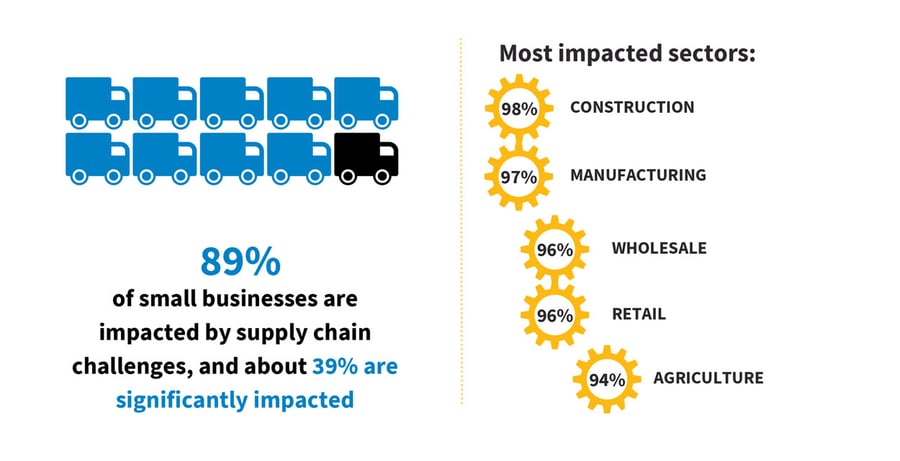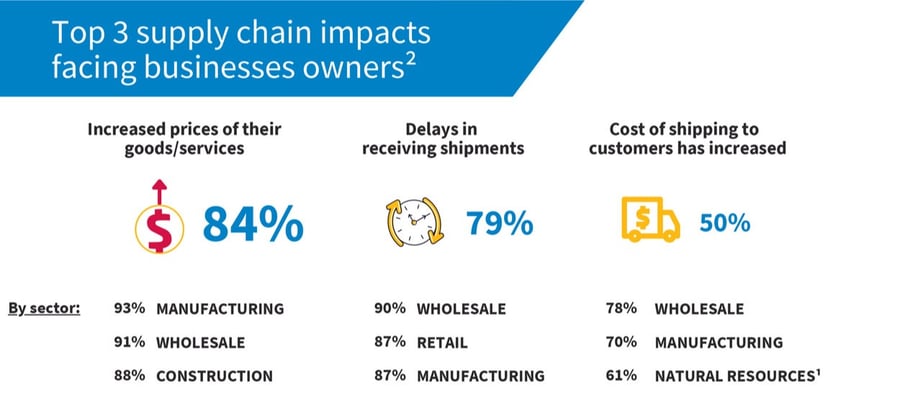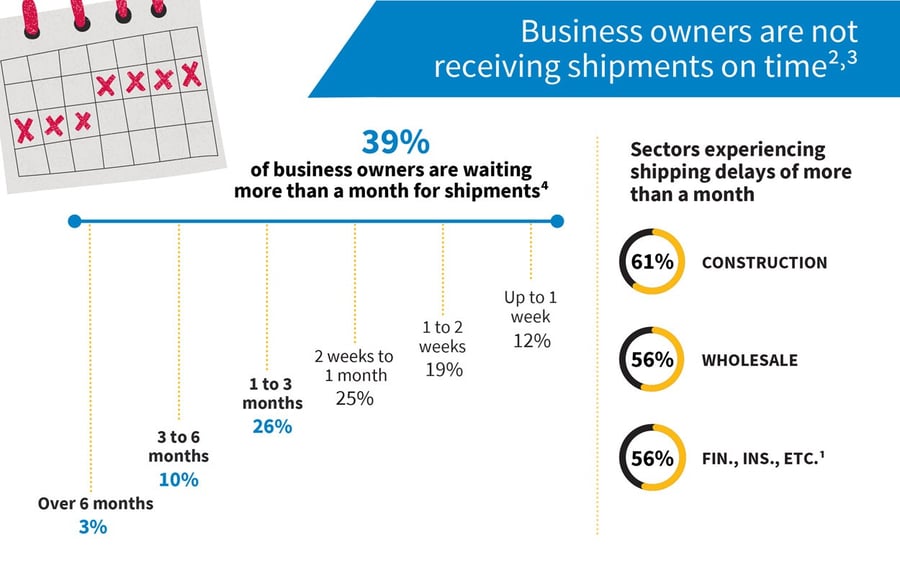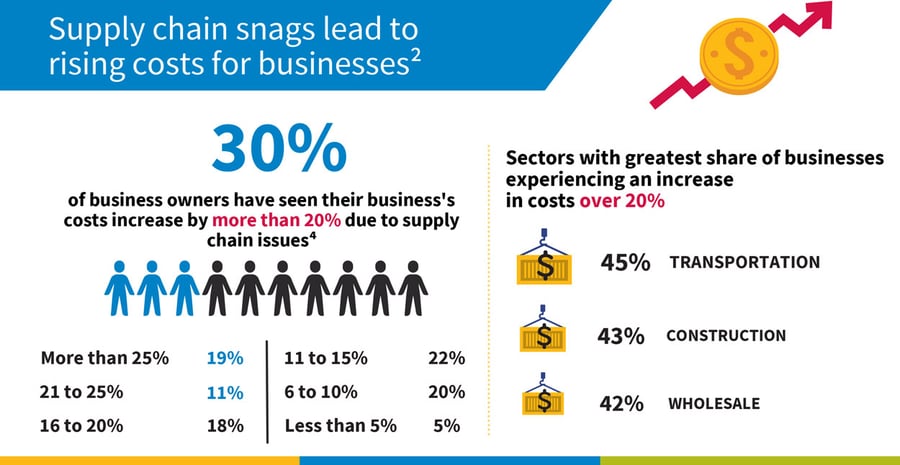
CFIB’s latest research on supply chain issues, using results from the Your Voice survey conducted in February 2022, shows that 89% of small businesses are impacted by these challenges. Some sectors, such as construction (98%) and manufacturing (97%), are even more affected.

Supply chain disruptions can have adverse impacts on businesses. The top impacts include, increases in the price of their goods/services (84%), delays in receiving shipments (79%) and increases in shipping costs for their customers (50%). Overall, wholesale and manufacturing appear to be the most impacted sectors, as they are at the top in all of these three negative effects.

For businesses that indicated that they had delays in their shipments, 39% of them are waiting more than a month. Construction and wholesale are the most affected sectors, as 61% and 56% of businesses, respectively, are experiencing delays longer than a month.

Finally, supply chain snags also lead to rising costs for businesses. In fact, 30% of business owners have seen their business’s costs increase by more than 20% due to supply chain issues. More businesses operating in transportation, construction and wholesale are experiencing an increase in costs over 20%, approximately 45%, 43% and 42%, respectively.
Related Documents
| Release Date | Report | Download |
|---|---|---|
| March 2022 | Infographic: Small Businesses and Their Supply Chain Issues |
PDF (733 KB) |
Source: CFIB, Your Voice - February 2022 survey.
Based on 4,001 responses from business owners across Canada.
Notes:
- Small sample, use with caution.
- Only includes respondents that indicated they are slightly, moderately or significantly affected by supply chain challenges.
- Only includes respondents that indicated they had delays in their shipments.
- Percentage of respondents who answered "Don't know/Unsure" is not displayed.

 Share Article
Share Article
 Print Article
Print Article
